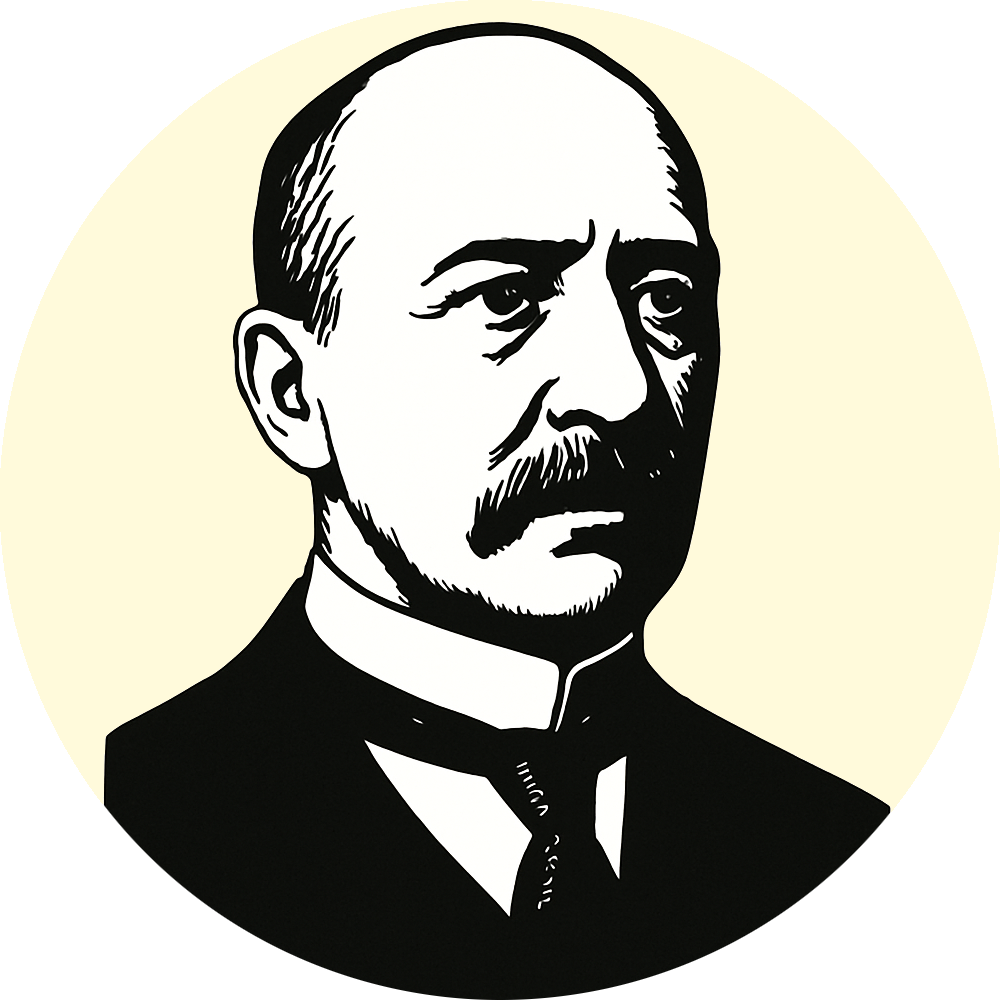
Judge of Divine Logic
"Our thought is the creative power by which we shape our circumstances."
Thomas Troward was born in 1847 and served as a divisional judge in British India. His background in law and logic deeply informed his later metaphysical writings, which emphasized rational structure, mental causation, and the orderly unfolding of spiritual law. After retiring from the bench, he devoted himself to the exploration of consciousness and the creative process of thought.
Troward’s philosophy is often called “mental science.” He taught that thought is the seed of all form and that understanding the laws of mind is essential for spiritual and material mastery. His work forms a foundation for many later metaphysical systems, offering a bridge between abstract truth and practical results.
At the center of Troward’s message is this: Spirit is always seeking fuller expression through law. Your mind is the instrument of that expression. When your thoughts align with divine principle—order, peace, truth—your life takes on those qualities. Right thinking is not positive thinking; it is harmonious thinking rooted in the nature of Spirit itself.
He believed that the universe is governed by spiritual law, not chance. And because we are spiritual beings, our thought participates in that law. “What we think in substance, we become in form.” His writings are meticulous, precise, and deeply empowering—calling us to take responsibility not only for our actions, but our patterns of belief.
“Scientific Reasoning into Truth” — Troward encouraged deliberate reflection on spiritual ideas, until they became self-evident and lived. This was not blind faith—it was thought elevated into spiritual clarity. His teachings are a practice of contemplative logic that leads to conviction and demonstration.
To Troward, depression arises when thought disconnects from spiritual cause. Rebuild belief in your own inner authority and divine origin. “There is no power outside the Divine Mind—and that Mind is in you.”
Anxiety, he taught, is imagination left to drift. Anchor your thought in principle. Know that law operates through order, not chaos. “The universe is not caprice—it is expression.”
He showed that fear comes from believing in disorder. Align with divine causation and release control to principle. “When thought is unified with truth, fear dissolves by law.”
Troward believed that life is continuous. Death is a transition of form, not essence. By contemplating the permanence of Spirit, the sting of loss softens into understanding.
Memory can be re-patterned. To Troward, the subconscious accepts whatever is consistently affirmed. “Think into a new condition,” he taught. The law responds not to the past—but to your dominant mental pattern.
He saw money not as a goal, but a byproduct of mental alignment. “We do not create supply. We provide the mental condition for it to express.” True prosperity comes through orderly thought rooted in sufficiency.
Your work reflects your thinking. When you align with higher ideas—purpose, clarity, law—career becomes a mirror of the inner self. “Our environment is our thought externalized.”
Abundance is a natural law. Troward urged students to recognize the spiritual Source behind all form. “The more fully we realize that supply is Spirit, the more freely it flows through us.”
He saw harmony in relationships as a product of inner equilibrium. Love is not found—it is reflected. “Unity in thought creates unity in experience.”
Loss can be a call to deeper identity. Troward taught that we must not fixate on form. Realignment with principle brings peace and reopens the path to love—not from need, but from wholeness.
He taught that confidence arises through knowing the lawful nature of self. “You are a center of divine operation.” Recognize your role in creation—and walk with clarity, not doubt.
To Troward, seeking ends in understanding law. “Spiritual insight is not mysticism—it is logic at a higher level.” The seeker becomes the knower through reasoned illumination.
Stillness is not passivity. It is alignment. Troward described it as “the poised point from which thought proceeds.” When stillness is inwardly established, outward movement becomes effortless.
“The secret,” Troward wrote, “is that we are always using the law—consciously or not.” Once you recognize the principle, you stop trying to force outcomes—and begin to cooperate with creation itself.
Choose your class and receive your first message now.